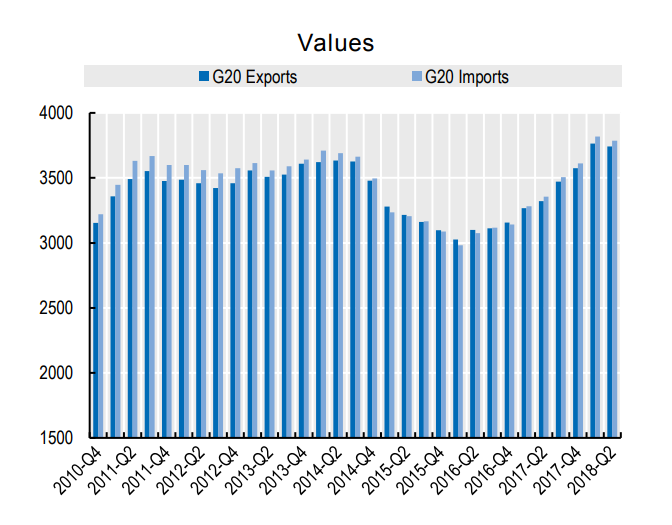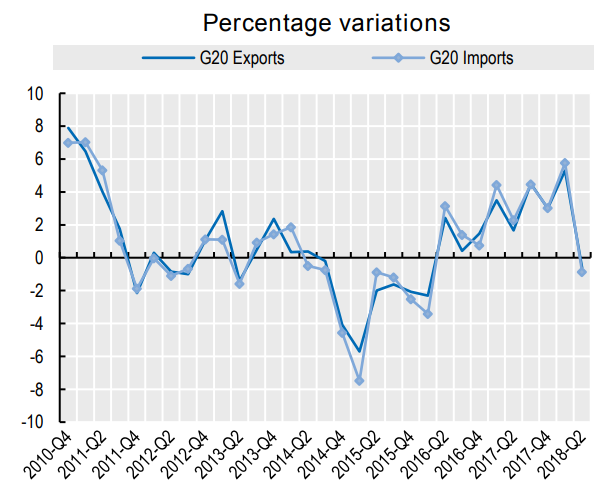G20 international merchandise trade, seasonally adjusted and expressed in current US dollars, decreased in the second quarter of 2018 following eight consecutive quarters of growth, according to recently-published international trade statistics by OECD. G20 exports declined by 0.6% and imports by 0.9%.
In the second quarter of 2018, exports grew in:
- Saudi Arabia (9.7%),
- India (5.7%),
- the United States (4.4%),
- Canada (4.4%),
- Russia (1.2%) and
- Australia (1.2%),
Exports reduced in:
- Argentina (minus 19.9%),
- Brazil (minus 9.0%) and
- the United Kingdom (minus 6.9%),
- China (minus 2.8%) and
- the European Union (minus 1.9%).
Imports decreased in most G20 economies, most significantly:
- in Turkey (minus 9.4%) and
- Brazil (minus 6.5%).
Imports only increased in:
- India (2.9%),
- Canada(1.4%),
- Mexico (1.4%),
- Japan (1.2%) and
- Indonesia (1.2%).

The widespread contraction in international merchandise trade can be partly explained by the significant depreciation of a number of currencies against the US dollar in the second quarter of 2018, notably the Argentine peso (down 18%), the Turkish lira (down 15%), and the Brazilian real (down 11%). These effects were partially offset by rising oil prices: benchmark Dubai Crude increased to 71.6 USD per barrel in the second quarter compared to 64.0 USD in the previous quarter.































































